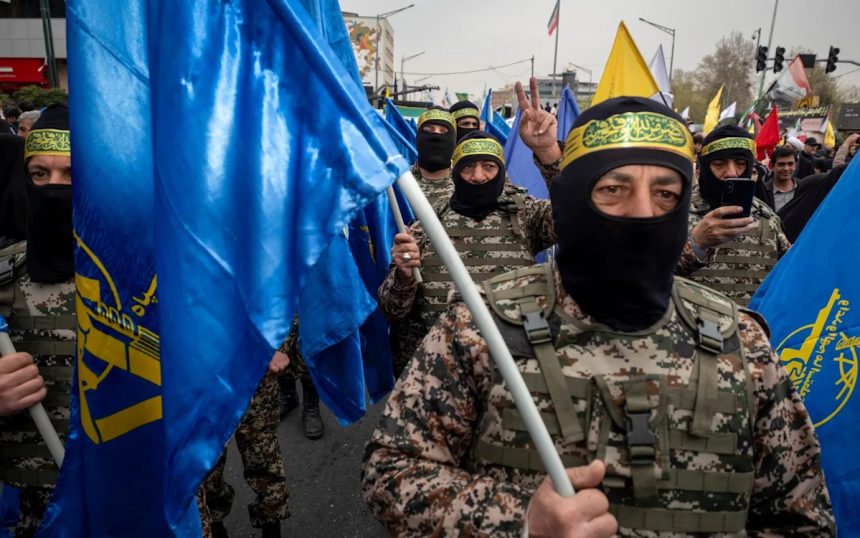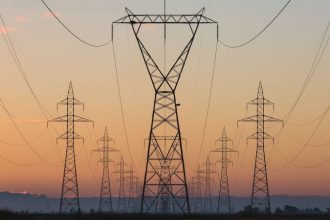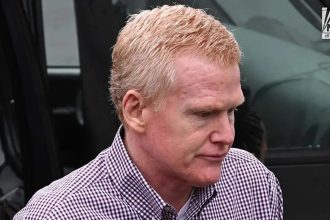The Iranian security services are gripped by infighting and paranoia, with officials competing to prove their loyalty amid fears of Israeli infiltration, regime sources say.
Members of the Islamic Revolutionary Guard Corps (IRGC) and several key security agencies, commanders and senior figures are said to be turning on one another.
The turmoil was described to The Telegraph by officials inside the regime, and follows an extensive Israeli infiltration during the 12-day war in June.
The sources said there were growing fears among Iranian officials and security circles that individuals who may have been compromised by or were working with Israeli intelligence could be falsely reporting loyal Iranians as being traitors.
Analysts say this may be part of a broader effort to remove trusted insiders from key roles, weakening Iran’s security system from within.
The result is growing paranoia within Iran’s intelligence services, where it is hard to tell true loyalty from infiltration, and false accusations are used to settle scores or serve foreign interests.
In interviews with The Telegraph, officials said there was also “confusion” about the fate of Iran’s proxy forces across the Middle East and increasing uncertainty about the regime’s future.
One senior Iranian official told The Telegraph from Tehran: “Many officials, including within the Sepah [IRGC], are doing everything they can to convince the system that they haven’t done anything wrong, since it’s obvious to everyone now that the Israelis have massively infiltrated several agencies.”
He added that many within the powerful IRGC are taking steps to prove their loyalty.
The paranoia within the IRGC risks weakening Iran’s most powerful military force and the regime’s ability to respond coherently to future crises, experts said.
A second Iranian official said: “Trust is one issue, but what’s becoming an even greater concern is the growing number of people who are, in one way or another, betraying the system.”
Iran has arrested hundreds of people on espionage charges since the war began in June and has executed several Iranians.
Officials who spoke with The Telegraph said these actions were meant to “show that the system is still functioning”, even though “many within it are dirty”.
One official said: “People within the system who have long-standing disputes are now building cases against one another and taking revenge.
“There is growing concern that some with contacts in Israel may report loyal insiders of being dirty or blackmail them.”
An Israeli attack on an oil depot during the war with Iran in June – Getty Images
Meanwhile the regime has continued its crackdown on dissent as executions reach record levels.
Earlier in November, mourners chanted “Death to the dictator” and “Death to Khamenei” at the burial of a young man whose body was found hours after he posted a video of himself burning an image of supreme leader Ali Khamenei.
In protest against Omid Sarlak’s death, Iranians are burning images of Mr Khamenei and sharing videos of it on social media.
Environmental problems have further compounded the regime’s challenges, with officials warning that a major dam supplying drinking water to Tehran and a neighbouring province could run dry within days.
Severe air pollution has forced school closures across several Iranian cities this week, with the southwestern city of Ahvaz reporting hazardous air quality levels.
“There is always a fear of committing suicide out of fear of death in the Islamic Republic,” said a political science professor at a university near Tehran. “And that is exactly what going nuclear means to them.”
The regime believes nuclear weapons offer survival, but pursuing them accelerates the very isolation and conflict that threaten its existence.
Internationally, Iran is now even more isolated. The reimposition of UN sanctions following the collapse of the 2015 nuclear deal is draining its remaining economic resources, which leaves the regime with fewer tools to manage both foreign threats and domestic dissent.
However, the regime remains stable and experts believe there is no immediate danger of collapse, thanks largely to a broad rallying around the flag during and after the war with Israel.
After four decades of revolutionary Islamic messaging, Iran’s leadership is increasingly using glories of the Persian Empire to rally a population that has grown distant from the regime’s founding ideology.
The shift became visible this week when authorities installed a replica of a 1,700-year-old relief sculpture in central Tehran.
The monument shows Valerian, emperor of Rome, who fell to his knees before Shapur I in 260 AD. The replica is accompanied with a message: “You will kneel before Iran again.”
Public dissatisfaction with conditions in the country has also reached 92 per cent, according to the latest poll conducted by the Iranian Student Polling Agency on behalf of the president’s office.









